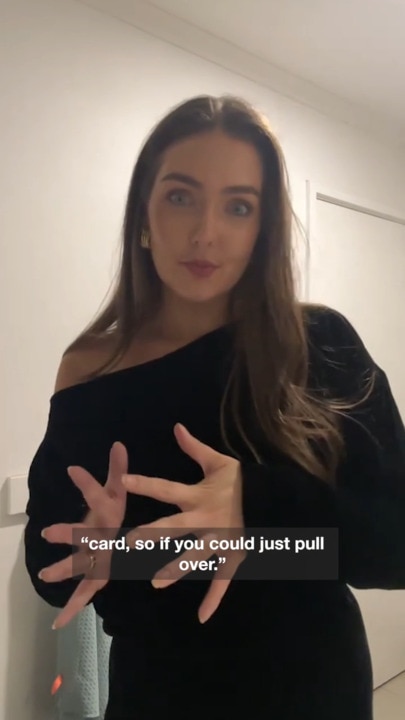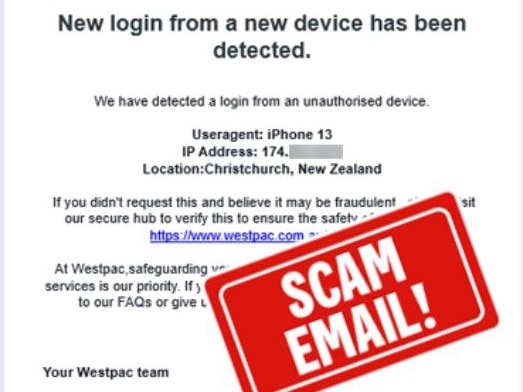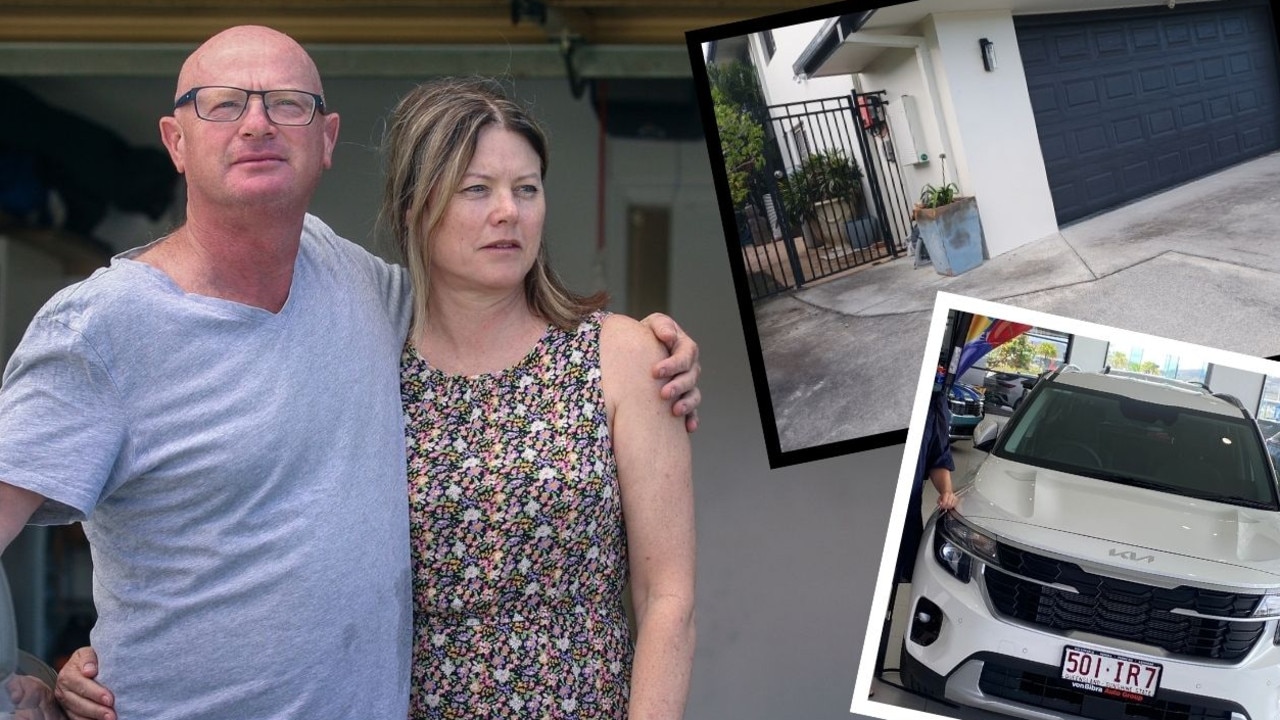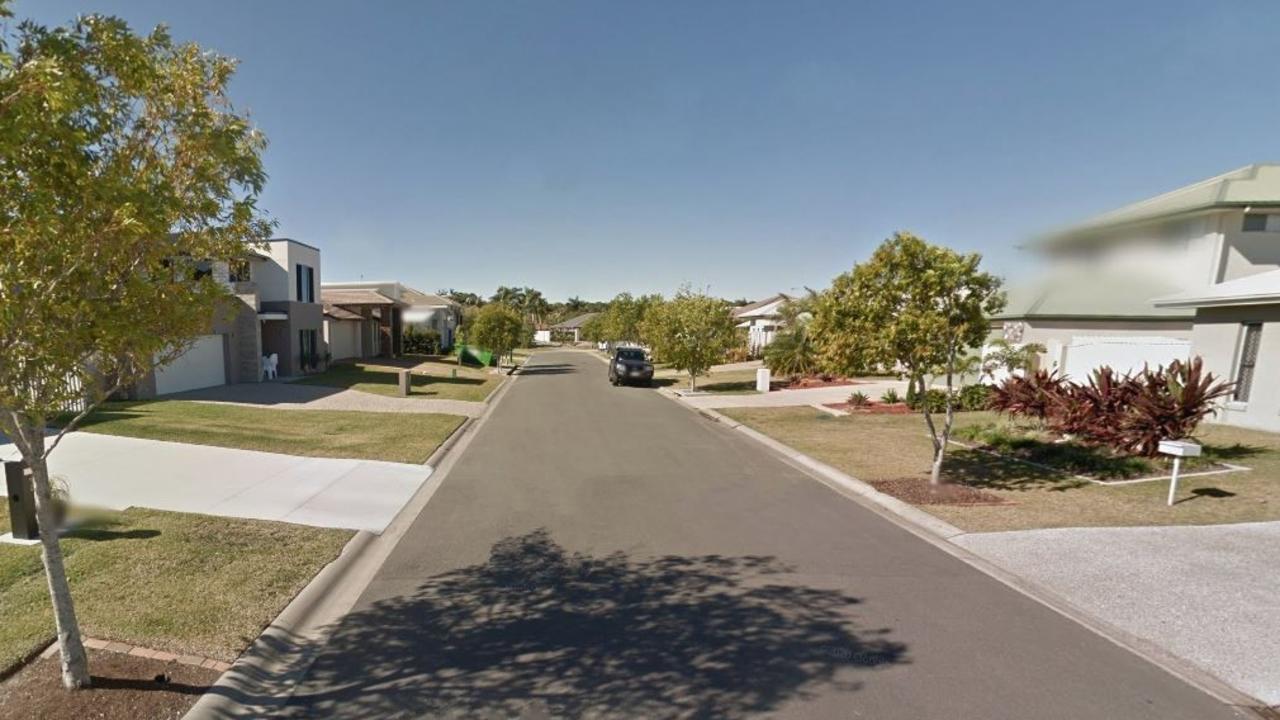Fake Swift tickets, puppies: Australia’s scamming hotspots revealed
Scammers are targeting Aussies in alarming new ways, fleecing them of money. See which suburbs are being targeted, how to spot a scam and how to protect yourself.

True Crime
Don't miss out on the headlines from True Crime. Followed categories will be added to My News.
Exclusive: From sweet deals on Taylor Swift tickets, to warnings about unpaid tolls, and pleas for mum and dad to text because junior had to suddenly get a new mobile phone, Aussies are being hit by an increasingly targeted array of scams.
Exclusive new data from Westpac shows Liverpool (NSW), Tarneit (Vic), Toowoomba (Qld) and Morphett Vale (SA) are Australia’s scamming hotspots, with hundreds of residents duped by a myriad of scams over the past two years, including fake investment and romance possibilities. The bank reports a scam rate of 3.4 per 1000 customers.
In some cases the dodgy schemes fail because of anti-scam protocols and technology, but even so, Westpac customers lost a total of $71 million in the first six months of this year.
Losses were highest in Wahroonga (NSW), Brighton (Vic), Surfers Paradise (Qld) and Hillbank (SA), the Westpac data revealed.


The bank’s Head of Fraud Prevention, Ben Young, called it a “scam-demic”.
“The scams reported to us stretch from the fast-growing suburbs of western Sydney where there is a relatively new hub of economic activity, to the tourist centre of Surfers Paradise and over to the west. We’re finding scammers are having the biggest impact in communities with increasing economic activity, or those with ageing populations,” he said.

Almost one in three victims (32 per cent) are aged between 61 and 75, the Westpac data showed.
Some 40 per cent of scams come from social media, and those big tech companies could do more to cut the problem off at its source, Westpac’s Group Executive for Customer and Corporate Services Carolyn McCann said.
In a recent meeting with Facebook’s owner Meta about the issue, she said, the company seemed “open to the conversation, but we need to start seeing some action”.
“We would really love to see them step up to the plate a bit more and do things like actually know their advertisers. If they’re taking advertising revenue from people who are doing financial ads, they should either know that those financial products are real, or they should just ban advertising financial products on their site,” she said.
Another 20 per cent of scams spread through phone messaging, but “the telecommunications companies have been better in stepping up and helping us with things like black-listing numbers,” Ms McCann said.
Meta was approached for comment but did not respond by deadline.


Mr Young said Westpac was increasingly seeing scams targeted to particular events, such as big concert tours or tax return time.
“But there are also some strange rural ones, where you get scams around buying hay when things like that become hard to find,” he said.
Such finely targeted scams could catch many people unaware, Mr Young said, and in many cases, the scammers were lying in wait for victims, putting up ads on Facebook that would only apply to a small number of people, but which would act as a “digital trap”.
Scammers were also getting more sophisticated, producing 90-page documents to lend an air of credibility to bogus investment schemes, and this was set to get worse with AI being used to easily create such items, Mr Young warned.
But even simplistic scams like the fake SMS telling a driver they had unpaid tolls could prove effective, despite widespread awareness about the fraud, he said.
“The road toll scam works even in states where they don’t have any road tolls, believe it or not,” Mr Young said.
Earlier this month the federal government released draft legislation on a Scams Prevention Framework for discussion. While Australia has bucked international trends with declining losses from scams, there is concern that the proportion of victims who get reimbursed is far lower than in other countries such as the UK.
Originally published as Fake Swift tickets, puppies: Australia’s scamming hotspots revealed





